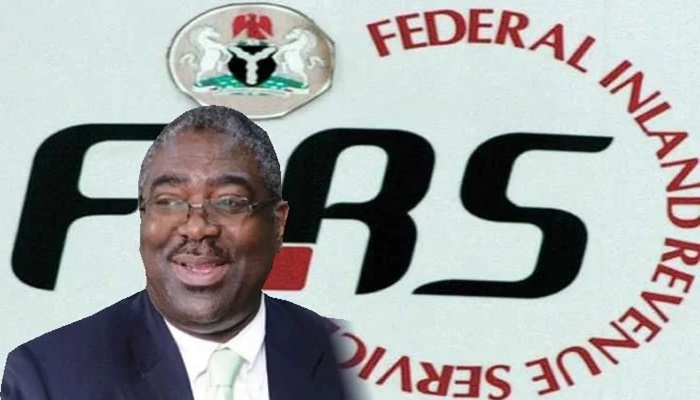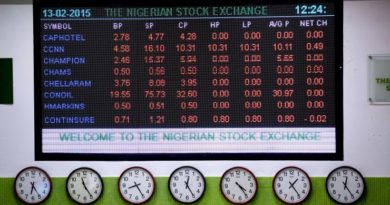LCCI, ABCON flay FIRS’ order to banks to freeze tax defaulters’ accounts
The Lagos Chamber of Commerce and Industry (LCCI) and the Association of Bureau De Change Operators of Nigeria (ABCON) have rejected the move by the Federal Inland Revenue Service (FIRS) to freeze accounts of tax defaulters.
The bodies described the decision as an act of intimidation which will affect the businesses of their members adversely.
The Director-General of LCCI, Mr. Muda Yusuf, in a statement, said tax administration should be in consonance with the basic tenets of the rule of law and the fundamental principles of a good tax system. He added that tax administration should be consistent with the basic principles of equity, fairness, legality and accountability.
“The LCCI is concerned about the recent turn of events, especially the freezing of accounts of bank customers based on tax assessments that are in dispute. This provision is draconian and could be used as a tool of intimidation, coercion and harassment of taxpayers. It should be invoked with utmost discretion and caution,” he said.
The chamber raised a number of key concerns which included, “whether the claim of tax liability by the FIRS of the affected investors applies to a final and conclusive assessment which should be an outcome of an exhaustive engagement between the tax authorities and the taxpayer. The propriety of appointing banks as ‘collecting agents’ by the FIRS, given the strategic and catalytic role of the banking system in business operations, financial intermediation and transactions among economic players is also an area of concern.
It describes as unfair and unacceptable the legality of freezing the accounts of bank customers by the banks on the directive of FIRS for alleged tax liability, given the contractual relationship between the banks and their customers. Disrupting businesses of account holders by suddenly freezing their accounts for reasons of alleged default in tax payment could cause an irreparable reputational damage to businesses. Also, there is risk to financial inclusion as SMEs may avoid the use of banks for their transactions if FIRS goes ahead with such action.
LCCI, however, urged FIRS and the banks to exercise utmost restraint in the adoption of this tax revenue recovery strategy because of the grave implications for investors and the economy. The damage to the economy may be much more than the contemplated revenue. “These are not the best of times for investors in the economy. Many businesses are reeling under a huge burden of high cost of doing businesses.
“They are grappling with high energy cost, astronomical cost of logistics, huge regulatory compliance cost, exorbitant property tax, outrageous cost of funds, multitude of taxes and levies imposed by the states and local governments, high import duty, excruciating conditions at the Lagos Ports and the challenges of corruption. These are critical contextual issues that should be taken into account.
“Revenue generation is not an end in itself, it is a means to an end. The ultimate objective is to ensure equity, improve welfare of citizens, create jobs and promote the advancement of the economy. The activities of agencies of government should be in tandem with the Ease of Doing Business agenda of government and the promotion of the ideals of the Economic Recovery and Growth Plan (ERGP),” it stated.
Similarly, the Association of Bureau De Change Operators of Nigeria (ABCON) has raised alarm over the ongoing suspension of bureau de change accounts by banks, demanding for tax remittances on turnover volumes.
Aminu Gwadabe, president, ABCON, said banks were acting under the directive of the FIRS to demand that the BDCs pay taxes on funds used to bid for their dollar allocations sent to the Central Bank of Nigeria on a weekly basis through the commercial banks.
Gwadabe, in a statement on Thursday, August 23, said many banks had written to the BDC operators and were implementing a ‘Post No Debit’ order on the operators’ accounts even where there was no evidence of tax default. “The BDCs are high turnover sector and their funding cash for dollar collections cannot be subjected to taxes. An average BDC does over N30m weekly turnover and paying taxes on such funds will affect their cash flow and ability to meet their statutory role of foreign exchange supply to the retail-end of the market,” he said.
He said many of the affected BDC operators were already facing major funding challenges that needed to be addressed immediately by concerned stakeholders. “In fact, we will be writing to the Central Bank of Nigeria to complain about the illegal policy of the ‘Post No Debit’. Presently, most of our members funding with the deposit money banks for their bidding obligations are being trapped in the banks. This scenario, if not checked, will affect our members funding capacity, derail the sustainability of their businesses with the resultant liquidity spikes.”
It should be recalled that the FIRS had written to select banks to be collecting agents with a mandate to subsequently freeze the accounts of defaulters. Such accounts will be debited to the tune of the alleged tax debt.




